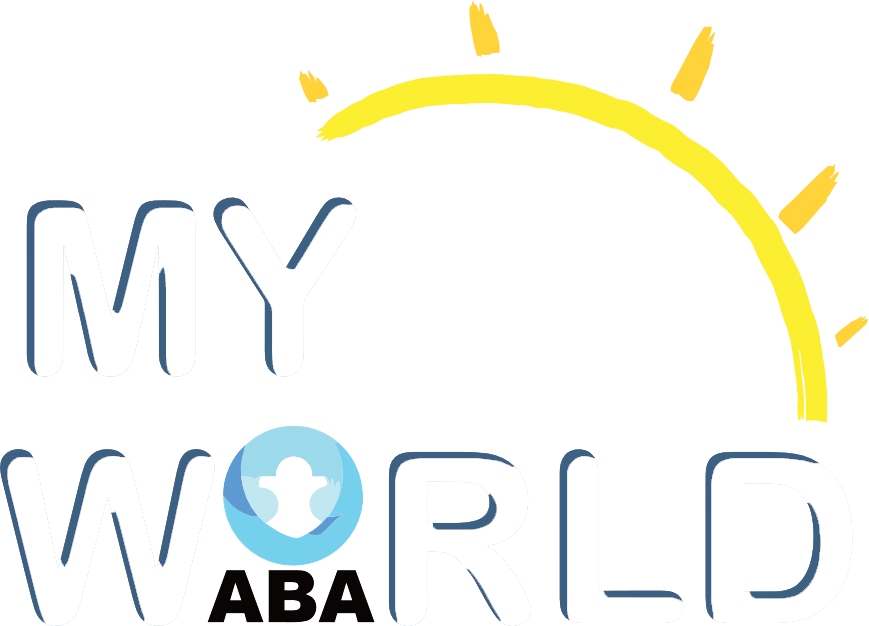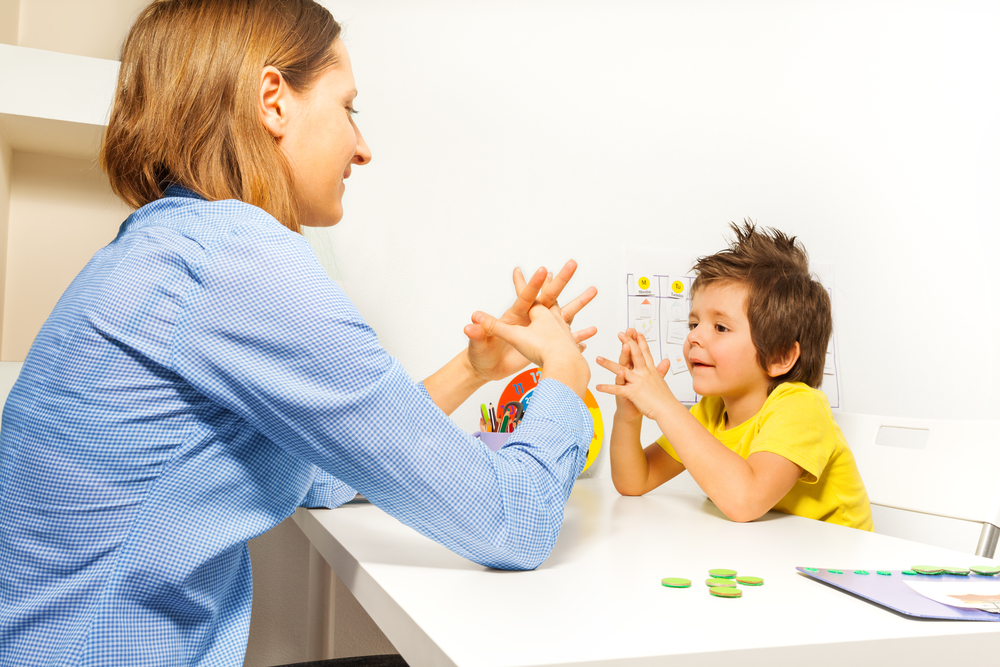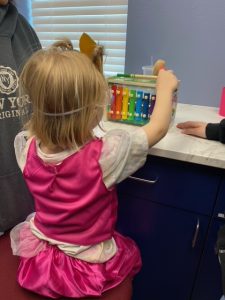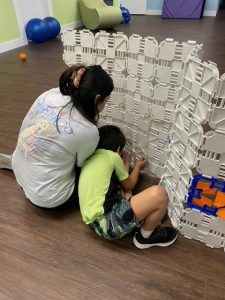My World ABA believes that kids should learn and grow at their own pace, and we are here to facilitate that process using evidence-based ABA therapy. One of the things we practice here is building self-esteem, respect, and self-worth among those who participate in our therapy program.
There has been a debate in the autistic community regarding person-first language versus identity-first language. This talks about how people refer to themselves or others when they are on the autism spectrum. There are debates about which is the better approach, and it really comes down to a personal choice.
This guide will give you something you can incorporate into your own behavior at home and when referring to your loved one who has autism. It can also get you thinking about how to relate to your child.
What Is Person-First Language?
Person-first language, in both speaking and writing, puts the person first when referring to a health condition or disability. For example, we will say:
- A child on the autism spectrum
- A child with an autism spectrum disorder (ASD)
- A child who is neuroatypical
There are some in this community who believe putting the person first builds self-esteem and self-worth.
What Is Identity-First Language?
Identity-first language takes the opposite view as person-first language. For example, someone might say or write:
- Autistic child
- Neurodiverse child
- ASD child
There are advocates, like the Autistic Self Advocacy Network, who say this is the more informed way to discuss children with autism because autism spectrum disorders should be celebrated with positivity rather than have a perception of autism as something negative.
Is There a Consensus About Person-First vs Identity-First Language?
There are passionate debates on both sides of the person-first vs. identity-first debate.
A study published in early 2023 in the journal Autism surveyed 728 stakeholders in autism in the United States, including people who are autistic, family members, friends, clinicians, therapists, and researchers. In the survey, 87% of the people with an autism spectrum disorder (out of 299 in the survey) preferred identity-first language, such as “I am autistic” or “I am an autistic person.”
However, Washington University notes that friends, family members, and autism professionals preferred person-first language among the 332 people surveyed.
Yoland Loftus, a journalist specializing in autism and writing for Autism Parent Magazine, interviewed Dr. Emily Lovegrove in early 2021. Known as the “bullying doctor,” Lovegrove herself (who has been diagnosed with autism) prefers identity-first language.
Meanwhile, Loftus notes that Dr. Ron Malcolm uses person-first language in his academic writing when referring to people with disabilities or other diagnoses.
Another aspect of this debate is when autism is diagnosed. Parents may start by using person-first language when their children are young. As the child grows older, they may change and use identity-first language because they see an autism spectrum disorder as a gift that makes them unique rather than a hindrance.
The organization Autism Speaks utilizes both person-first and identity-first language, noting that its audience doesn’t have a one-size-fits-all approach.
What Matters Most in the Person-First vs. Identity-First Debate?
In the end, what truly matters is what the individual prefers.
If your child talks to you about being called autistic, there are ways to have a positive, self-affirming discussion. Ask how your child feels. Ask which way they prefer. It might be more important to accept, embrace, and understand the person for who they are, not what they are diagnosed with. It’s really all about making your child feel loved and cherished.
If you are worried about upsetting someone with autism when using this person-first or identity-first language (if the person tells you of their diagnosis), you can always ask what the person prefers.
Autism Support in Springfield, Ozark & Joplin
Here at My World ABA, we provide caring and compassionate ABA therapy to every client we see in Joplin, Ozark, and Springfield, MO. Our approach is based on kindness and understanding for everyone, and we strive to create a fun and inclusive environment where your child will feel welcome. We also help educate family members and help them find the resources they need for their family to thrive.
To learn more about our services or answer additional questions, visit our website or call (417) 818-5784 today.





